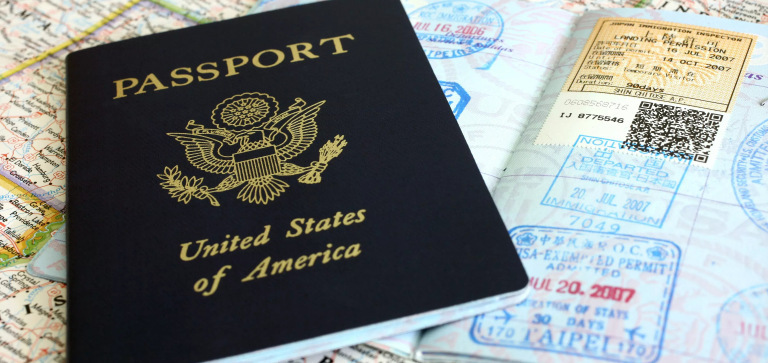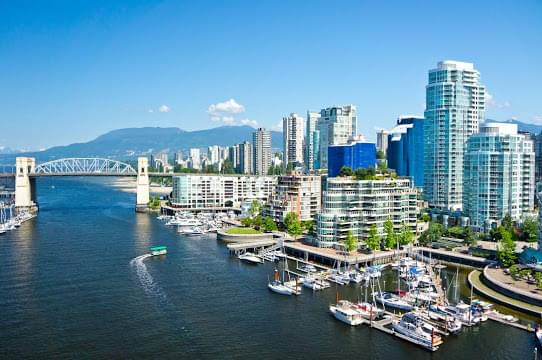Welcome to the ultimate guide on how to navigate the Indian visa application process with ease! Planning a trip to India, with its rich cultural heritage and breathtaking landscapes, is undoubtedly an exciting endeavor. However, we understand that tackling visa applications can be overwhelming and confusing. That’s why we’re here to simplify things for you. In this blog post, we’ll share valuable tips and tricks that will make your Indian visa application a smooth sail. From understanding different types of visas to gathering necessary documents – no stone will be left unturned in our quest to demystify the process. So fasten your seatbelts and get ready for an informative journey towards simplifying your Indian visa application! INDIAN VISA APPLICATION PROCESS
Introduction to the Indian Visa Application Process
Applying for an Indian visa can seem like a daunting task, especially if you are unfamiliar with the process. However, with a little bit of knowledge and preparation, it can be a smooth and stress-free experience. In this section, we will provide you with an overview of the Indian visa application process and the necessary steps you need to take to successfully obtain your visa.
Step 1: Determine Your Visa Type
The first step in applying for an Indian visa is determining what type of visa you need. The type of visa required depends on your purpose of travel, such as tourism, business, employment, or study. Each type of visa has its own requirements and documentation needed. It is crucial to determine the correct visa type before proceeding with the application process.
Step 2: Gather Required Documents
Once you have determined your visa type, the next step is gathering all the necessary documents for your application. These documents may include a valid passport with at least six months validity remaining from date of entry into India, recent passport-sized photographs, proof of travel itinerary or accommodation bookings, proof of financial means to support yourself during your stay in India, and any other specific documents depending on your purpose of travel. It is important to carefully review the document checklist provided by the Indian embassy/consulate in your country before submitting your application.
Step 3: Complete Online Application Form
All Indian visas are applied for online through the Indian government’s official website –
Types of Indian Visas
There are various types of visas that can be obtained for traveling to India, each with its own specific purpose and requirements. Understanding the different types of Indian visas can help you determine which one is most suitable for your travel plans and ensure a smooth application process. In this section, we will discuss the most common types of Indian visas and their key features. INDIAN VISA PASSPORT REQUIREMENTS
1. Tourist Visa:
This type of visa is issued to individuals who wish to visit India for tourism or recreational purposes. It is valid for a maximum stay of 180 days and can be applied for either single entry or multiple entries within a specified time period. Tourist visas cannot be extended in India, so it’s important to plan your trip accordingly. Additionally, travelers must have a return ticket and sufficient funds to cover their expenses during their stay in India.
2. Business Visa:
A business visa is granted to individuals traveling to India for business-related activities such as meetings, conferences, trade fairs, etc. This visa allows multiple entries into the country within its validity period, which ranges from 6 months to 5 years depending on the purpose of your visit. Applicants may need to provide proof of invitation from an Indian company or organization along with other documents such as a letter from their employer and financial statements.
3. Employment Visa:
If you are planning on working in India, you will need an employment visa which is valid for up to 1 year initially but can be extended upon request by the employer in India. This type of
Understanding the Indian Visa Requirements
India is a country full of rich culture, vibrant colors, and diverse landscapes, making it a popular destination for travelers from all around the world. However, before you can embark on your journey to this beautiful country, you will need to obtain an Indian visa. The Indian visa requirements can be overwhelming and confusing for first-time visitors, but understanding them is crucial for a smooth and hassle-free application process.
Types of Indian Visa:
The first step in understanding the Indian visa requirements is to know which type of visa is suitable for your purpose of travel. India offers various types of visas depending on the purpose of visit such as tourist visa, business visa, employment visa, student visa, medical visa etc. Each type has its own specific requirements and eligibility criteria that must be met.
Validity and Duration:
Indian visas are typically valid for six months or one year from the date of issue. However, there are some exceptions such as multiple-entry visas which can have longer validity periods. It is essential to note that the duration of stay allowed in India depends on the type of visa issued.
Passport Requirements:
A valid passport with at least six months validity remaining is mandatory for all applicants applying for an Indian visa. The passport should also have at least two blank pages available for stamping purposes. If your passport does not meet these requirements, it will need to be renewed before you can apply for an Indian Visa.
Online Application Process:
All applications for Indian visas must be submitted online through the official website of the Indian
Passport Requirements
Passport requirements are an essential part of the Indian visa application process. Your passport is not only your primary identification document, but it also serves as proof of your citizenship and eligibility for entry into India. Therefore, it is crucial to ensure that your passport meets all the necessary requirements before you begin the visa application process.
1. Validity:
The first and foremost requirement for a passport when applying for an Indian visa is its validity. Your passport must be valid for at least six months beyond your intended date of departure from India. If your passport’s expiration date is within six months of your trip, you will need to renew it before submitting your visa application.
2. Blank Pages:
Another critical requirement for a passport is having enough blank pages. The Indian government mandates that all foreign nationals have at least two blank pages in their passports available solely for stamping purposes upon arrival in India. This means that you cannot use any pages with existing visas or stamps from other countries.
3. Quality:
Apart from being valid and having enough blank pages, the quality of your passport also matters when applying for an Indian visa. Your passport should be undamaged, without any tears or missing pages, and have clear and readable information on every page.
4. Signature:
Your signature plays a crucial role in verifying the authenticity of your passport during the visa application process. Make sure that you have signed each page of your passport consistently with the one on the bio-data page.
5. Passport Photos:
You will need to submit



